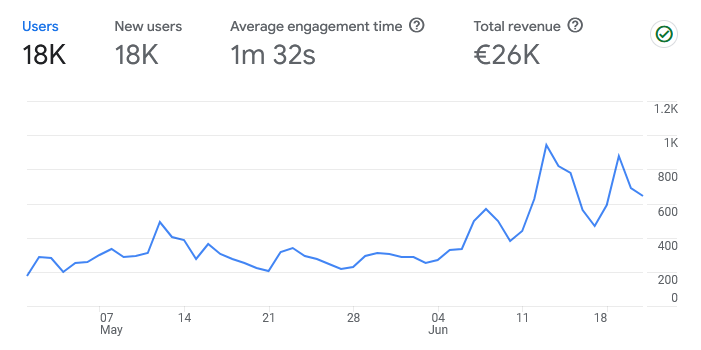Keywords are the foundation search engine optimization (SEO). When a user searches for information online, they type a word or phrase into a search engine. The search engine then uses that input to display the most relevant results. Including the right keywords on your website can increase the chances that your page will appear in those results.
Why are keywords important?
- help search engines understand what your website is about
- increase the visibility of your page for relevant search queries
- contribute to a higher conversion rate by attracting a more targeted audience
Keyword research
Using tools
Tools such as Google Keyword Planner, Ahrefs and SEMrush they can help you identify keywords that are relevant to your industry or niche.
- find out which keywords are most searched for
- check the difficulty of ranking for certain keywords
Competition analysis
Understanding which keywords your competitors prioritize can provide you with valuable insights.
- examine metadata and content of competing websites
- use tools like Ahrefs to identify keywords your competitors rank highly for
Targeting long strings of keywords
Long-tail keywords are specific, usually longer keywords or phrases that users type into a search engine. To target long-tail keywords, you can:
- use keyword analysis tools that allow you to search for these long strings
- Think about the questions or more complex queries that your target audience might type into a search engine.
Keyword placement
Titles and subtitles
Your titles and subheadings are among the first elements that search engines scan. Include keywords in these elements, but make sure they remain readable and relevant to the content.
Metadata
Metadata is the information about your website that search engines see. Include keywords in meta descriptions and page titles, as this improves your visibility in search results.
Contents
Keywords should be strategically placed throughout the text on your website. Use them naturally and avoid overuse to avoid being penalized for “keyword stuffing.” To this end, it is a good idea to have a website builder and SEO expert work together at all stages. website creation.
Measuring effectiveness and adjusting strategy

Monitoring keyword performance
After selecting and implementing keywords, it is extremely important to regularly monitor their performance. You can do this using various analysis tools, such as Google Keyword Planner, Ahrefs and SEMrushThe tools allow you to:
- monitoring the position (ranking) of your website for certain keywords
- analysis of visits to your site resulting from these keywords
- checking how visits via selected keywords are converted into desired actions (conversions)
Adjusting SEO strategy
The SEO world is dynamic and unpredictable. Search engines regularly update their algorithms, and user habits change rapidly. Therefore, it is essential to:
- Regularly check your page's ranking and respond to any changes in its position
- you follow news and updates in the SEO industry so you can adjust your strategy in a timely manner
- Run A/B tests to find out which keywords and approaches work best for your target audience
- Study the competition and adapt as needed to maintain or improve your market share
By constantly measuring and adjusting your strategy, you will be able to maintain or even improve your online visibility while increasing your chances of long-term success.
Conclusion
Keyword optimization is one of the most basic, yet crucial components of a successful SEO strategy. It’s not just about choosing the right keywords, but also about strategically placing them and constantly monitoring their effectiveness. By understanding your audience’s needs, analyzing your competition, and targeting long-tail keywords, you can significantly improve your online presence. This not only increases traffic to your website, but also improves your chances of conversion and long-term success.
To achieve the best results, it is crucial that your SEO approach is constantly adapting and optimizing. Search engines and user habits change, so being flexible and up-to-date with keyword knowledge is essential for long-term success.

